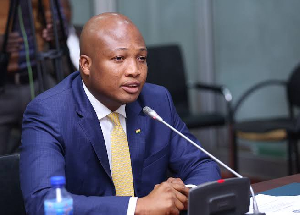



Samuel Okudzeto Ablakwa, Chairman of the Operation Recover All Loot (ORAL) team, has expressed grave concern over the Commission on Human Rights and Administrative Justice's (CHRAJ) apparent indifference to its dwindling credibility. Ablakwa's remarks come amid growing public dissatisfaction with the CHRAJ's inaction on corruption-related issues and its perceived failure to fight state capture.
Speaking on Good Morning Ghana, Ablakwa stated that his team had already received over 700 petitions from concerned Ghanaians alleging corruption, malfeasance, and state capture. The petitions, which were filed through the ORAL team's three interactive platforms, reflect the public's growing unhappiness with the government's handling of corruption and the need for institutional responsibility.
"We've received more than 700 petitions as of yesterday, and the feedback we are getting from the public is overwhelming," Ablakwa told me. "Ghanaians are enthusiastic about Operation Recover All Loot, and they are using the website, toll-free hotline, and email to express their concerns. "We are gathering all of the evidence, and once the new Attorney General is appointed, we will turn over all of the collected materials," he explained.
Ablakwa also praised the public's involvement with the platform, noting that the website www.oralgh.com.org and the toll-free hotline 0800900111 have become indispensable instruments for citizens reporting corruption. He observed that the initiative's success had been aided by a group of IT experts who gave their time to construct the platform for free, in contrast to the frequent app launches and commissioning events associated with government-funded programs.
Despite these attempts, Ablakwa was forthright in his criticism of CHRAJ, claiming that the commission's refusal to address the issues presented by the ORAL team risks eroding its own credibility. "It appears CHRAJ is unconcerned about damaging its reputation," Ablakwa commented. He criticized the commission's lack of visible action on corruption issues, as well as its unwillingness to take strong action in examining charges of state capture.